Clean Air Day 2024 - Interview with Dr James Levine
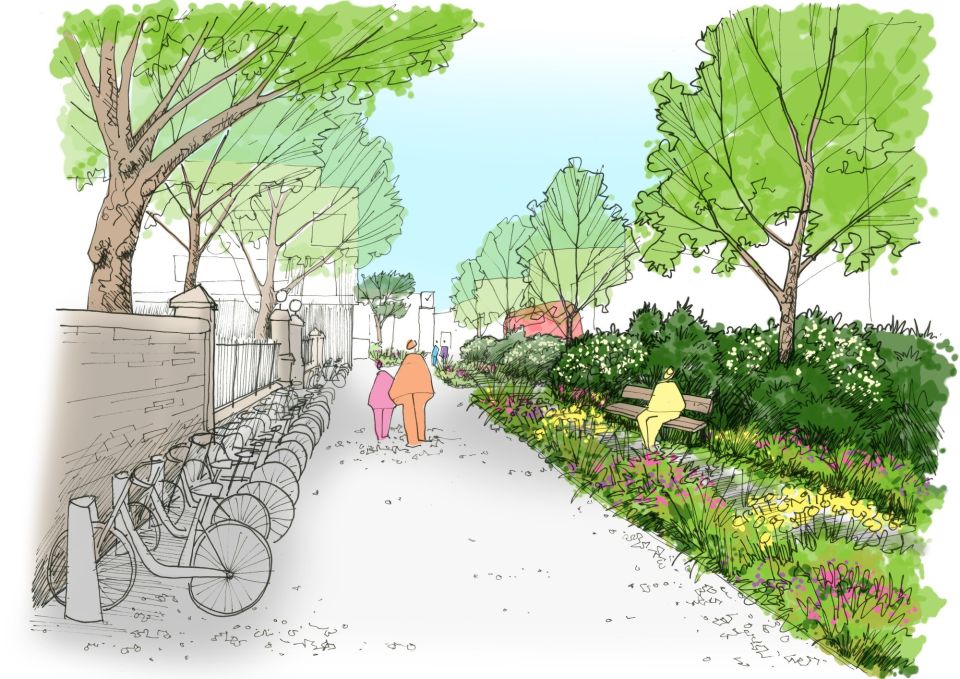
To mark Clean Air Day this year, we're celebrating our collaboration with Dr James Levine and his work on air quality at the University of Birmingham. Check out our interview with James and find out how urban trees and nature can help make our cities healthier places to live.
What is air pollution?
It's a basic question, but James Levine, Senior Research Fellow at the University of Birmingham, is just the guy to answer it. He has a background in atmospheric science (that's the study of Earth's atmosphere) and has turned his expertise to urban air quality.
"In the broadest sense, air pollution is all the stuff in the air that are of harm to us and other living things," James tells us, "they can be gasses, fine particles, little droplets of liquid. When we're talking about climate change, we're looking at emissions of greenhouse gases such as carbon dioxide. But from an air quality perspective, we're concerned with nitrogen dioxide and so-called 'fine particulate matter', which both come from road transport."
Air pollution is currently estimated to reduce the life expectancy of every person in the UK by an average of 7-8 months.
GOV.UK
And we should be concerned, because air pollution in this country is reported to cause between 28,000 and 36,000 deaths every year. What's more, air pollution can exacerbate existing conditions such as asthma and cardiovascular disease, lowering the quality of life for people who already suffer from these illnesses.
James expands on this picture, "UK-wide statistics, such as an average reduction in life expectancy of several months across the whole population, mask an inequality in health impacts as more deprived communities tend to live in areas of worse air quality to begin with, and so get hit much harder than those in more privileged areas."
So air pollution is collectively reducing our life expectancy, and those living in poorer areas suffer the worst, so...
How can we reduce air pollution?
Well, it may not come as a surprise, but the key to reducing the harmful effects of air pollution is to reduce it at source. That means less traffic on our roads. In an ideal world, this would look like excellent public transport, fewer one-person car trips, and greener and safer ways to get around on foot or bicycle.
We don't have to look too far for inspiration. In Amsterdam, cycling accounts for 36% of all traffic movements, and the city of Ghent in Belgium has banned most motorised vehicles in its city centre altogether.
But reducing traffic is a long game, so what can we do in the meantime? Fortunately, we've got experts like James Levine and his colleague, Professor Rob MacKenzie, on the case.
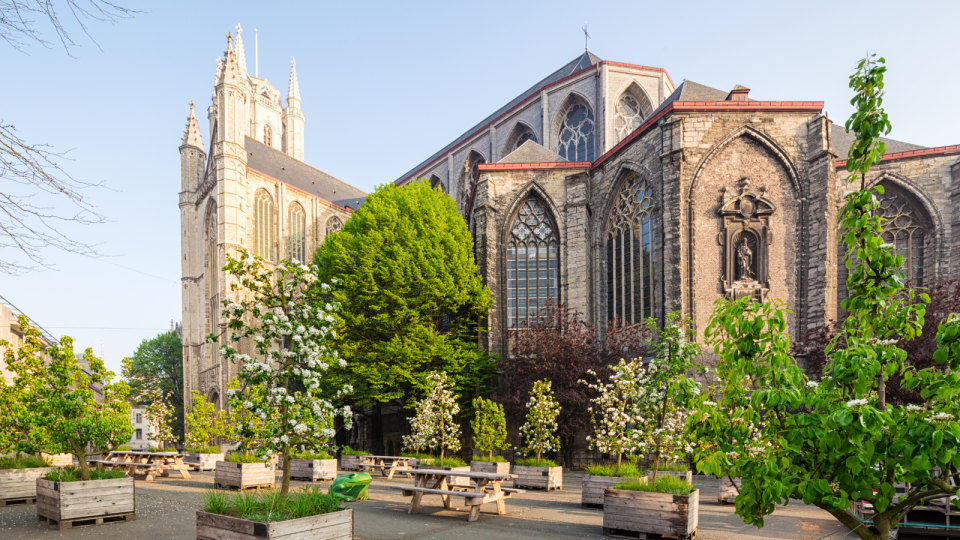
How can trees play a part in air quality?
On a grand scale, trees do something called deposition, which is the removal of a small fraction of some air pollutants through capture onto leaf surfaces, but when we're talking about urban environments, vegetation plays less of a role in reducing air pollution, and it's more about how they affect airflow.
You may have noticed when walking alongside a congested road, that the air just feels worse. If there are buildings on either side, this can further trap the air at ground level. But by strategically planting trees and other vegetation such as bushes, we can help mix up the polluted air coming from sources like exhausts and wheel friction, with the cleaner air higher up.
Under the right conditions, tree and vegetation barriers can reduce the pollutants we're exposed to by up to half. By planting the right trees in the right place, not only can we make our urban areas greener, but we can make them healthier too. If you’d like to help plant more urban trees, donate today.
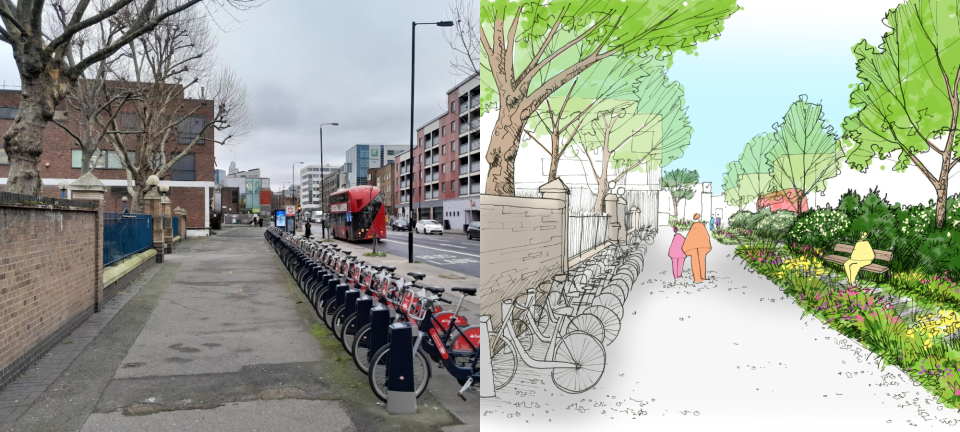
James and Rob's research at the University of Birmingham has led to the creation of the GI4RAQ open source platform (Green Infrastructure for Roadside Air Quality), to promote and facilitate evidence-based use of green infrastructure to reduce roadside exposure to vehicle pollution. Alongside our team at Trees For Cities, it's already been applied to the London Borough of Tower Hamlets, looking at ways to utilise urban nature to help protect people from air pollution in the borough.
Why are we at excited about GI4RAQ?
Tree planting space in deprived urban areas is limited, and yet these are the locations that need green spaces the most. This platform provides a practical, evidence-based framework to enhance urban environments while considering the impact on air quality, helping decision-makers and developers make educated choices that benefit the people who live there.
What can you do to help?
Now you know what air pollution is, its harmful effects, and what we can do to reduce it at source, as well as combat it with green infrastructure, here are a few steps you can take to play your part:
- It costs just £6 to plant an urban tree. Donate today to help grow greener, healthier towns and cities.
- You don't need to be scientifically minded to check out the GI4RAQ platform. There's some helpful guides on the website, as well as a deeper dive into roadside air quality.
- Follow us on social media @TreesForCities and help promote our cause of helping make our cities and towns greener and healthier places to live!
- Sign up to our monthly newsletter, Tree Times, to stay up-to-date with our work, events and news.
Talking Trees
This year, Trees for Cities turns 30 and we are on the cusp of planting our two-millionth urban tree, and counting. Over the year, we’ll be celebrating by sharing some of the voices and stories of the people who have helped to plant and protect all of those trees.
Dr James Levine is one of thousands of people across the UK - volunteers, partners, and children - who have worked tirelessly with us over the years, digging, watering, caring for trees, as well as donating and cheering us on – we couldn’t have done it without them.
Learn more
-
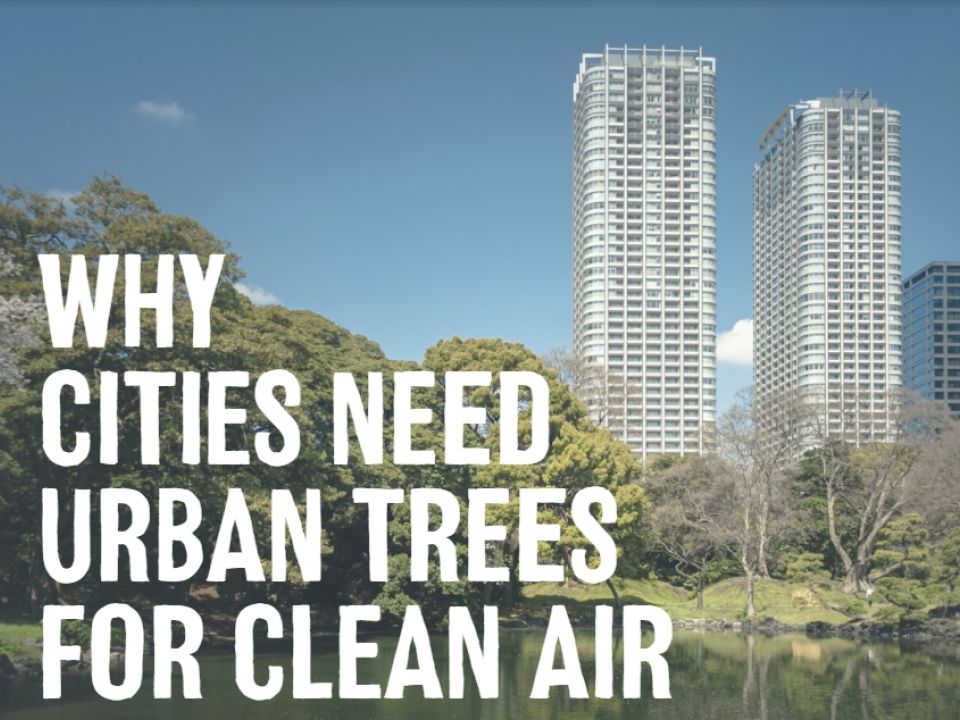
Why Cities Need Urban Trees for Clean Air
23 May 2023
As we approach Clean Air Day 2023, let’s take a closer look at how urban trees produce clean air, and why they’re so essential to our wellbeing.
-
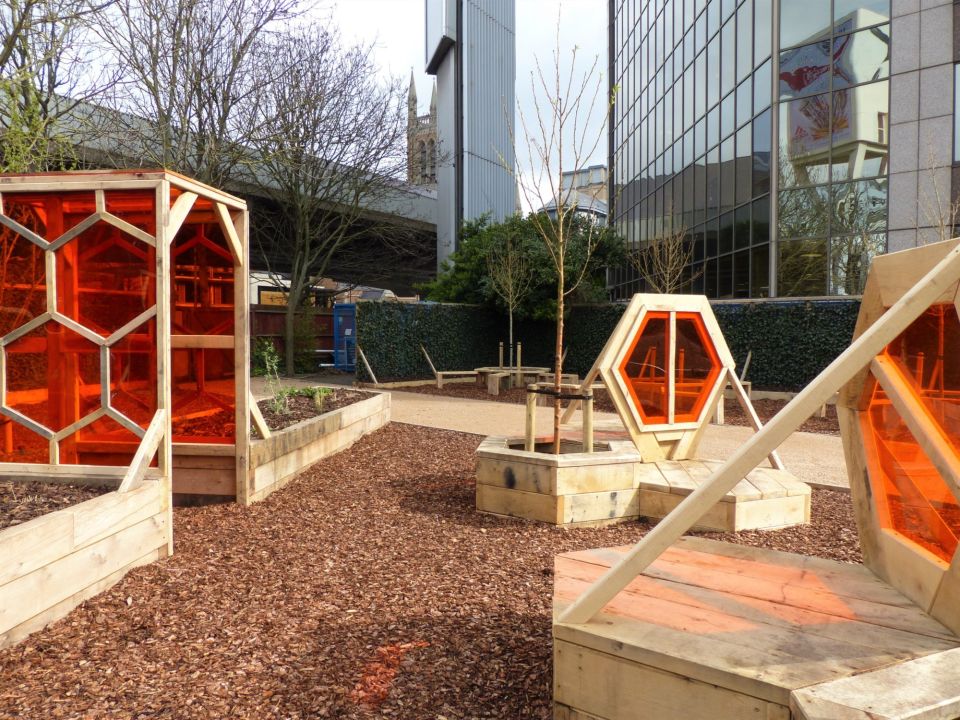
Planting Healthy Air
Find out about Planting Healthy Air in Schools, developed to address London's poor air quality.
-
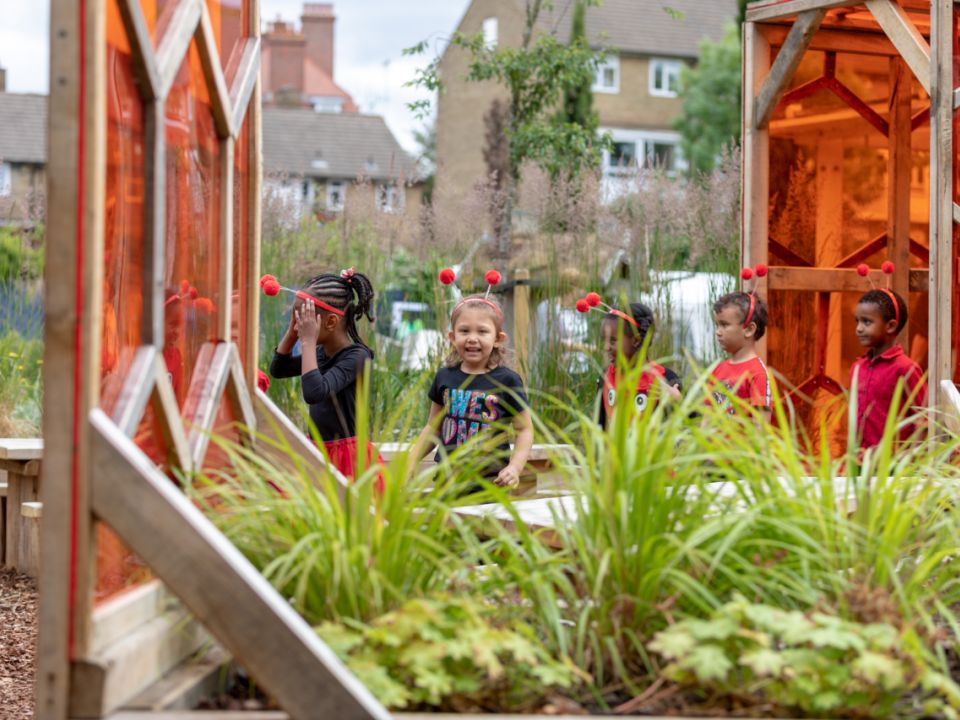
How London’s Second Most Polluted Primary School is going from Grey to Green
19 June 2019
On 14th June, we celebrated the launch of St Paul’s CE Primary School’s “Grey Goes Green” Woodland - the first Planting Healthy Air in Schools project by Trees for Cities.
See what our volunteers and staff have to say about air pollution in this video produced by James Levine and Susannah Littlewood, Senior Partnerships & Development Coordinator at Trees for Cities.
Donate to Trees for Cities and together we can help cities grow into greener, cleaner and healthier places for people to live and work worldwide.
Donate